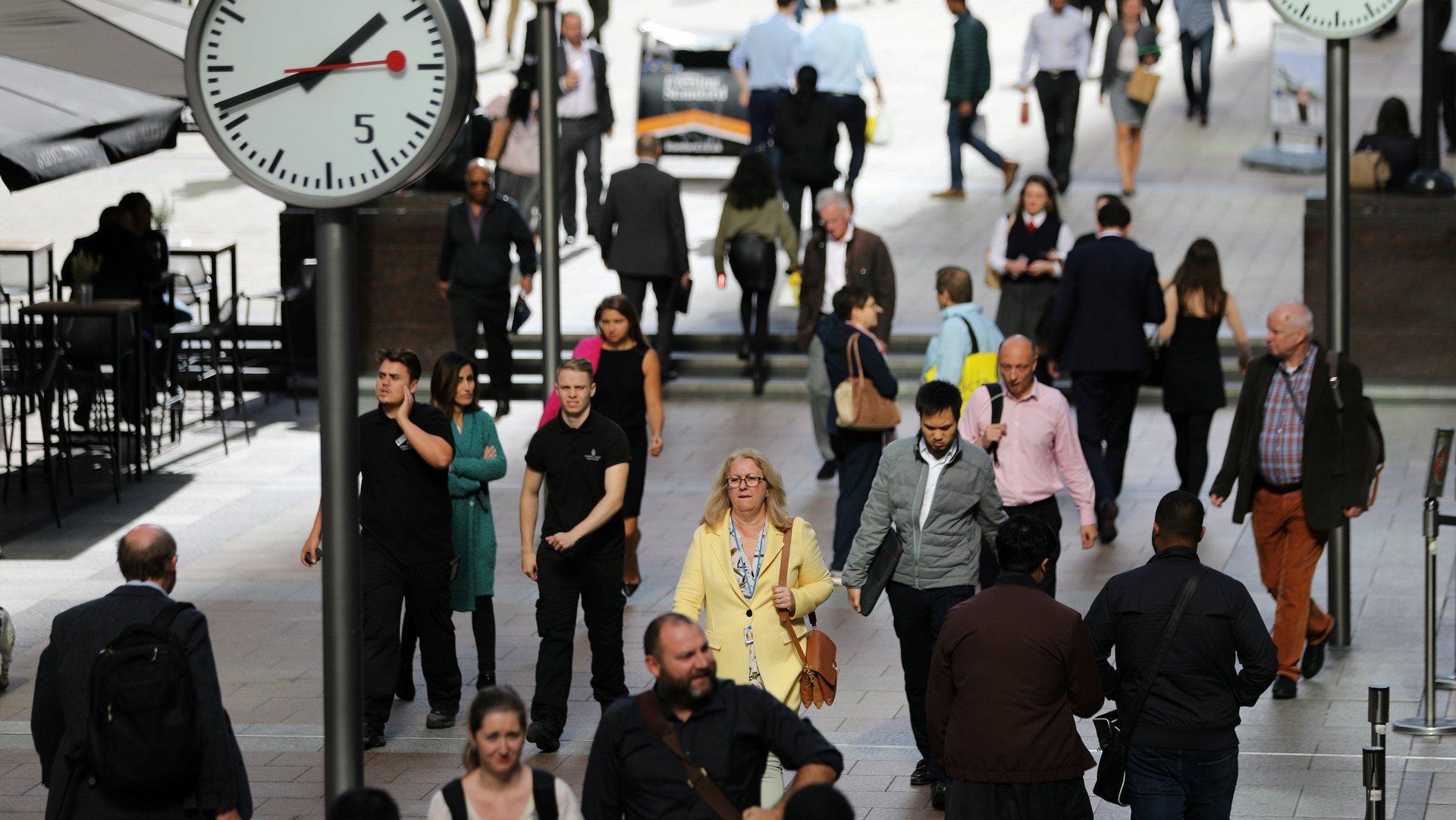The UK’s productivity problem is almost twice as bad as the rest of the G7
The UK economy’s decade-long struggle with low productivity is showing little sign of abating. In the second quarter of 2017, output per hour fell by 0.1%, after falling 0.5% in the previous quarter, according to data released today (Oct. 6) by the Office for National Statistics.


The UK economy’s decade-long struggle with low productivity is showing little sign of abating. In the second quarter of 2017, output per hour fell by 0.1%, after falling 0.5% in the previous quarter, according to data released today (Oct. 6) by the Office for National Statistics.
The problem is much worse when compared to other large advanced economies. In the UK, productivity, measured by output per hour worked, was 15.1% below the average for the rest of the G7 in 2016, almost unchanged from 2015. Measured by output by worker and the UK’s productivity was 15.4% below the average for the rest of the G7 last year, slightly improved from 16.1% in 2015.
Last year, the UK’s productivity—measured both by output per worker and per hour worked—was only better than Japan and Canada’s but much lower than its major European trading partners and the US.
However, figures for just 2016 fail to show the extent and longevity of this problem.
Between 1997 and 2007, the UK’s average annual productivity growth was 0.2 percentage points higher than the average for the rest of the G7. Since the financial crisis in 2007, the UK’s productivity growth has been substantially weaker. One way to measure this is by looking at the difference between what productivity would have been, had it kept growing at pre-2007 levels, versus what productivity has actually been since the crisis.
This gap—and its failure to close—is often referred to as the “productivity puzzle.” In 2016, the UK’s productivity gap (measured by output per hour worked) was 15.8%, the largest in the G7 and almost double the average of 8.8% across the rest of the countries.
Since 2007, only Italy has experienced weaker productivity growth.
UK economic growth since the financial crisis hasn’t been helped by increases in employment or people working more hours, so workers have still experienced weak wage growth. The UK economy will have to further contend with low productivity as it exits the European Union.
Last week, the ONS revised down its estimates for UK growth in the last three quarters of 2016, which includes the period after the Brexit vote. Meanwhile, GDP growth in 2017 has been low and forecasts for the next few years are also underwhelming. Today, Bank of America Merrill Lynch said it was cutting its forecast for UK economic growth in 2018 to just 1% from 1.2%.